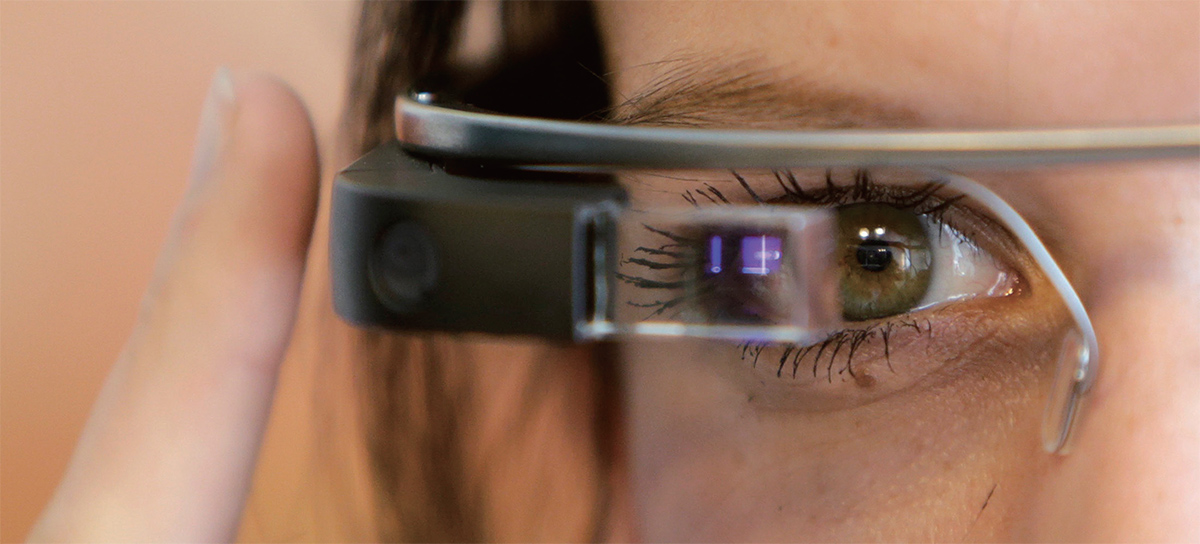- 디지털 지문이 당신을 옭아맨다

But that’s not the way it’s turning out. We’re each creating a digital doppelgänger, all right, whether we want to or not. This creature is not who we wish to be—it’s a raw, unfiltered, brutally revealing version of ourselves, built on our dossiers of clicks, keystrokes, swipes, likes, transactions and check-ins, absent whatever inner belief system drove them. If a soul is who you are no matter what everybody else sees, this digital you is the opposite of a soul: It is all action and no intention. No amount of church can save it—or retroactively alter it.
Apple CEO Tim Cook got a lot of ink recently by saying he is worried about your online privacy. And polls show the public is becoming more concerned about this issue, even though—as with global warming or an addiction to french fries—we tend to just keep doing what we’ve been doing and hope for the best.
But the issue is way more profound than anything Cook crabbed about. You are creating a version of yourself that will affect your future job interviews, loan applications and dates. For a wee glimpse of what’s coming, try out a site called Digital Shadow. The first words you see will be: “You are not an individual. You are a data cluster.” It gets weirder from there, guessing your salary or pointing out friends who might betray you, based only on your data trail.
Your digital self will gradually get fleshed out—even emotionally. Consider the potential of the new version of Google Photo. You give it your digital photos, and the software scans them for faces and situations, comparing the images with what it has learned from the billions of other photos in its system. It can recognize and tag people, places and things, so you can find that photo of you and your siblings by the statue of David. Google says it soon will also be able to recognize emotions, like whether you’re happy or angry in a photo. By analyzing the emotions in a big enough collection of images, Google could start understanding your relationships to friends, family, colleagues a way to “know” you that goes far beyond tracking search history.
Facebook might already know you better than your spouse does. One academic study, published last year by the National Academy of Sciences, showed that a computer model built using someone’s Facebook likes can judge the person’s personality traits more accurately than can friends or even family members. In fact, the analysis can even do a good job “predicting life outcomes such as substance use, political attitudes and physical health,” the researchers reported. Imagine how that might play out if mixed with a dating site or job interview.
The range of actions being turned into data is staggering. Online retailers like Amazon know what you buy. Netflix knows your taste in
movies; Spotify has your music preferences. Uber knows where you go and when. Tinder knows what you’re looking for in a one-night stand. LinkedIn knows what you’re good at. Seamless knows what you eat. News sites see what you read. Google knows what you write in Gmail and their calendar charts how you spend your time. And now Google’s Nest can tell who is in your house at what times of the day. If Google manages to make Google Glass popular, the company could collect data on everything you see.
All of it could feed into a more robust, authentic digital you. And new kinds of companies are popping up to interact with that version of you. In finance, Lenddo spent about three years proving that it could analyze the Facebook data of loan applicants to understand who would pay back the loans—a more accurate credit rating than a credit rating. It has used its system to lend money to thousands of people in developing countries who never had a bank account. Now it’s selling the technology to financial institutions.
As more industries find that your digital self accurately predicts how you’ll perform in real life, digital you will become your representative—a required pit stop on the way to a first date, a visa to get into another country, admittance to a college or approval to buy a house by the neighborhood board. The avatar you are creating today will determine your future.
No single entity can put all your data together in one place, although Facebook and Google already knows enough about frequent users to nearly replicate them. But just as you now have to let a mortgage broker look at your finances to buy a house, a prospective employer or insurer will require you to let them see your data. They will make you introduce them to your digital self.
This development is not de facto bad. For some, it might be great. If your digital self predicts that you will be a safe driver, you’ll pay less in car insurance. In a way, this is taking us back to an era of small towns, when the people and businesses you interacted with knew your family, your history, your true nature. In the movie It’s a Wonderful Life, Jimmy Stewart lends locals money because he knows them. As Lenddo is now showing, that’s the future of banking, not just its nostalgic past.
Yet like any technology, the creation and release of our digital doppelgängers could be trouble, used to influence or control us in ways we currently can’t comprehend. That seems to be what Cook was getting at in his fiery speech this month at the Electronic Privacy Information Center’s Champions of Freedom event. “You might like these so-called free services, but we don’t think they’re worth having your email, your search history and now even your family photos data-mined and sold off for God knows what advertising purpose,” he said. “And we think someday customers will see this for what it is.”
That someday is now. Your other you has already been born.
디지털 지문이 당신을 옭아맨다
온라인에 남긴 데이터가 취업 면접, 대출 심사, 데이트 등에 영향 미치는 시대 다가와10년 전 우리는 온라인 상의 가상 자아, 즉 아바타를 하나씩 만들어서 갖게 되리라고 생각했다. 근육질 아바타, 매력덩어리 아바타, 혹은 공룡 머리를 가진 아바타 등 자신이 원하는 형태를 갖춘 아바타 말이다. 현실과 거리가 먼 공상과학이 아니라 2003년부터 서비스 중인 가상현실 온라인 게임 세컨드 라이프에 기반을 둔 상상이었다.
현실은 생각했던 것과 다르게 흘러간다. 원하든, 원하지 않든 모두가 디지털 분신을 하나씩 갖게 된 것까지는 맞다. 문제는 이 분신이 우리가 바라던 형태를 보여주는 대신 우리를 있는 그대로 드러낸다는 데 있다. 이 분신은 우리의 마우스 클릭, 키보드 타이핑, ‘좋아요’, 온라인 결제를 바탕으로 만들어질 뿐 우리의 내면은 전혀 반영하지 않는다. 남들이 어떻게 보든 상관없이 우리 자신을 나타내는 것이 영혼이라면 디지털 세계의 우리는 영혼의 정반대 존재다. 의도가 없는 행동으로만 구성되기 때문이다. 디지털 세계의 나는 그 어떤 교회도 구원해주지 못한다.
최근 애플 CEO 팀 쿡은 고객의 개인정보가 걱정된다고 말해 세간의 주목을 받았다. 각종 여론조사는 대중이 지구온난화나 패스트푸드 중독 못지 않게 개인정보 보호에 갈수록 많은 관심을 가진다는 사실을 보여준다. 그럼에도 우리는 뭔가를 바꿔보려고 시도하지 않으면서 좋은 일이 일어나기만을 바란다.
이 문제는 쿡 CEO가 걱정하는 것보다 훨씬 심각하다. 온라인에서 형성되는 자아는 향후 취업 면접이나 대출 심사, 데이트 등에 영향을 미친다. 앞으로 다가올 일을 미리 들여다보고 싶다면 디지털 섀도우라 불리는 웹사이트를 방문해 보라. “당신은 개인이 아니다. 데이터 덩어리다.” 이 웹사이트에서 가장 먼저 보이는 문구다. 페이스북 아이디를 입력하면 단지 데이터 흔적만 갖고 이용자의 연봉을 추정하거나 앞으로 이용자를 배신할 가능성이 있는 친구를 골라낸다(한국에선 이용이 불가능하다).
디지털 자아엔 시간이 지날수록 살이 붙는다. 심지어 정서적인 부분도 예외가 아니다. 새로 나온 구글 포토 서비스의 잠재력을 생각해 보라. 구글 포토에 사진을 올리면 소프트웨어가 얼굴과 상황을 분석해 다른 수십억 개의 이미지와 비교하고 사람 얼굴, 장소, 사물을 인식한다. 이런 방식으로 특정 장소에서 가족과 함께 찍은 사진을 검색할 수도 있다. 구글측은 이 시스템이 조만간 사진 속 인물이 행복한지, 화가 났는지 등 감정도 인식할 수 있게 된다고 밝혔다. 방대한 규모의 이미지들 속에서 감정을 분석함으로써 구글은 이용자와 친구·가족·동료 사이의 관계를 이해하기 시작할 것이다. 단지 검색 기록을 추적하는 것 이상으로 이용자를 ‘이해하는’ 방식이다.
페이스북은 이미 여러분의 부인보다 여러분을 더 잘 알지도 모른다. 지난해 미 국립과학원은 한 사람의 페이스북 ‘좋아요’를 이용해 만든 컴퓨터 모델이 그 사람의 성격을 친구나 가족보다 더 정확하게 판단한다는 연구 결과를 내놓았다. 또 이 분석은 ‘약물 복용, 정치적 견해, 건강 같은 삶의 방식’을 예측하는 데도 뛰어난 성과를 보였다. 이 기술이 데이팅 업체나 취업 면접과 결합되면 무슨 일이 벌어질지 상상해 보라.
데이터로 변환되는 활동의 범위는 어찌나 넓은지 믿기 어려울 정도다. 아마존 같은 온라인 소매업체는 고객이 뭘 구입하는지 안다. 넷플릭스는 고객의 영화 취향을, 스포티파이는 음악 취향을 안다. 우버는 고객이 언제 어디를 갔는지, 틴더는 고객이 하룻밤 관계에서 뭘 원하는지를 알며 링크드인은 고객이 뭘 잘하는지, 심리스는 고객이 뭘 먹었는지, 뉴스 사이트는 당신이 뭘 읽었는지, 구글은 당신이 G메일에 뭘 썼고 구글 달력에 어떤 일정을 써놨는지 안다. 게다가 구글의 스마트홈 서비스 네스트는 고객의 집에 언제 누가 있었는지까지 알 수 있다. 만약 구글 글래스가 인기 상품이 된다면 구글은 고객이 보는 모든 데이터를 수집 가능하다.
이 모든 요소는 보다 견고하고 진짜에 가까운 디지털 자아를 형성할 수 있다. 온갖 기업은 그 디지털 자아와 교감하려 나선다. 금융업계의 렌도는 누가 대출을 상환할지 이해하기 위해 대출신청자의 페이스북 데이터를 분석하는 기술에 3년 동안 투자했다. 신용평가보다 더 정확한 신용평가다. 이 시스템을 이용해 은행 계좌조차 없는 개발도상국 고객 수천 명에게 돈을 빌려줬다. 최근엔 이 기술을 금융기관에 판매 중이다.
디지털 자아가 현실 세계의 고객을 정확하게 예측한다고 보는 업계가 점점 늘어남에 따라 디지털 자아는 우리의 대변인이 돼 간다. 첫 데이트, 입국 비자, 대학 입학, 주택 구매 등에 앞서 거치는 정거장이다. 오늘날 우리가 만드는 아바타가 우리의 앞날을 결정한다.
우리의 모든 데이터를 한곳에 모을 수 있는 기업은 없다. 비록 페이스북과 구글은 단골 고객이라면 거의 복제가 가능할 만큼 잘 알기는 하지만 말이다. 그러나 집을 사려면 대출심사업체에 금융정보를 제공해야 하듯이, 앞으론 고용인이나 보험사에 데이터를 제공해야 할 시기가 다가온다. 그들은 여러분 자신보다 디지털 세상의 여러분을 소개받고 싶어할 것이다.
나쁘기만 한 일은 아니다. 혜택을 입을 사람도 있다. 만약 여러분의 디지털 자아가 여러분의 안전운전을 보장한다면 자동차 보험료는 줄어들 것이다. 어떻게 보면 이 기술은 우리를 모두가 작은 마을에 모여 살던 시절로 되돌려놓는다. 그런 마을에선 우리가 만나는 사람들이나 업체들이 우리의 진짜 모습부터 삶과 가족까지 다 알고 있다. 영화 ‘멋진 인생’에서 지미 스튜어트는 지역 주민들에게 돈을 빌려준다. 그들이 누군지 잘 알기 때문이다. 렌도가 보여주듯이 미래의 금융은 향수 어린 과거와는 다를 것이다.
그럼에도 여느 IT기술과 마찬가지로 우리의 디지털 분신을 만드는 일에도 어려움이 있다. 디지털 분신은 우리가 현재로선 이해하기 어려운 방식으로 우리에게 영향을 미치고 우리를 제어한다.
쿡 CEO가 지난 6월 초 미 전자개인정보센터에서 열린 ‘자유의 챔피언’ 행사에서 열변을 토한 것은 그래서다. “여러분은 소위 공짜 서비스들을 좋아하실지도 모르겠습니다. 하지만 저희는 그런 서비스들이 여러분의 이메일 주소, 검색 기록, 심지어는 가족의 사진까지 챙길 만큼 가치 있다고 보지 않습니다. 어떤 목적으로 분석되고 팔려나갈지는 아무도 모르니까요.” 쿡 CEO는 이렇게 덧붙였다. “언젠가 여러분이 직접 느끼실 겁니다.”
지금이 바로 그 언젠가다. 우리의 또 다른 자아는 이미 탄생했다.
- 번역 이기준
ⓒ이코노미스트(https://economist.co.kr) '내일을 위한 경제뉴스 이코노미스트' 무단 전재 및 재배포 금지










![갓 잡은 갈치를 입속에... 현대판 ‘나는 자연인이다’ 준아 [김지혜의 ★튜브]](https://image.isplus.com/data/isp/image/2025/11/21/isp20251121000010.400.0.jpg)
![딱 1분… 숏폼 드라마계 다크호스 ‘야자캠프’를 아시나요 [김지혜의 ★튜브]](https://image.isplus.com/data/isp/image/2025/11/09/isp20251109000035.400.0.jpg)


당신이 좋아할 만한 기사
브랜드 미디어
브랜드 미디어
JY, 리사수·머스크 연쇄회동…'AI칩 동맹' 속도전[only 이데일리]
세상을 올바르게,세상을 따뜻하게이데일리
이데일리
이데일리
한소희, 의미심장 작별 인사? 소속사 입장은
대한민국 스포츠·연예의 살아있는 역사 일간스포츠일간스포츠
일간스포츠
일간스포츠
AI가 바꾼 대입 판도…이대·중대 AI학과 내신합격선 'SKY 수준'[only 이데일리]
세상을 올바르게,세상을 따뜻하게이데일리
이데일리
이데일리
불닭볶음면이 만든 1조 매출…삼양식품 신용등급도 상승세
성공 투자의 동반자마켓인
마켓인
마켓인
'영국 내시경 병목 뚫었다'…지노믹트리 ‘얼리텍-C’, 내년 1월부터 바로 매출
바이오 성공 투자, 1%를 위한 길라잡이팜이데일리
팜이데일리
팜이데일리